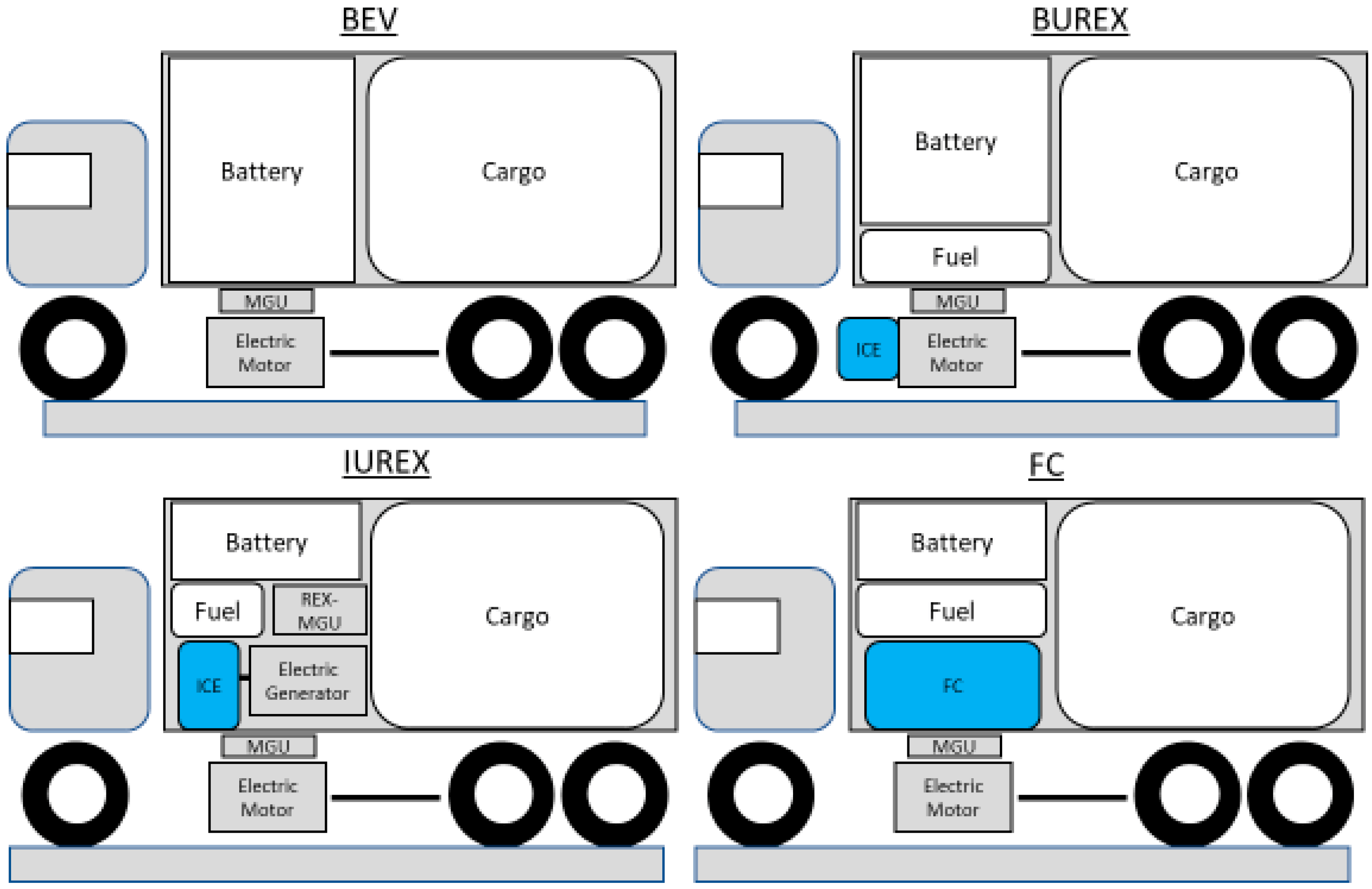World Electric Vehicle Journal : Evaluation of a Back-up Range Extender and Other Heavy-Duty BEV-Supporting Systems
Authors: Lennarth Zander, Pontus Svens, Henrik Svärd, and Petter Dahlander

Abstract: Electric powertrains in terms of battery electric vehicles (BEV) are considered to be very interesting for heavy truck transportations. The challenge is the need for very large onboard energy and batteries. Long-term fuel cells (FCs) are considered an interesting support system for heavy-duty BEV, but in the short term, a range extender (REX) is also interesting. A heavy-duty BEV with 970 kWh batteries installed can handle 27% of all possible missions for the Scania fleet considering daily recharging. The back-up range extender (BUREX) can expand this figure to 55% utilized 20 days per year. If a customer has a few very energy-demanding use cases each year and does not want to pay for all the batteries needed, the BUREX may be an especially good option. The BUREX reduces life-cycle CO2 emissions, irrespective of the generation mix of the grid supplying the electricity used in vehicle manufacturing and battery charging. The BUREX reuse of the existing electric components of the BEV powertrain enables the installation of a 10% larger battery pack while being 80% less costly. The BUREX also adds redundancy to the BEV concept while recharging infrastructure improves, especially in rural places. These results indicate that the BUREX concept is a powerful short-term solution that could enable greater use of HD FC and BEV trucks while charging infrastructure and FC technologies gradually become more mature.
In the same category
- “Driving Collaboration in Europe's Thriving EV Sector: opportunities for emissions reductions”
- Autel Energy bringing innovative new EV chargers across Europe
- Baden-Württemberg on its way to becoming the top location for e-mobility
- ECO/G
- Empowering the Transition to Electric Mobility: Equans' Smart Charging Solutions
- Hyundai
- Leapmotor
- Sungrow EV Charging Introduced Low and Fast EV Charging solutions
- Total Energies
- Why Submit to World Electric Vehicle Journal?
- World Electric Vehicle Journal : Analysis of Energy Flow in a Mid-Sized Electric Passenger Vehicle in Urban Driving Conditions
- World Electric Vehicle Journal : Battery Health Monitoring and Degradation Prognosis in Fleet Management Systems
- World Electric Vehicle Journal : Evaluation of a Back-up Range Extender and Other Heavy-Duty BEV-Supporting Systems
- World Electric Vehicle Journal : Implementation Schemes for Electric Bus Fleets at Depots with Optimized Energy Procurements in Virtual Power Plant Operations
- World Electric Vehicle Journal : Investigation and Development of Textile Lightweight Bodies for Urban Logistic Vehicles
- World Electric Vehicle Journal : Leveraging Connected Vehicle Data to Assess Interstate Exit Utilization and Identify Charging Infrastructure Investment Allocation Opportunities
- World Electric Vehicle Journal : Performance Comparison of Si IGBT and SiC MOSFET Power Module Driving IPMSM or IM under WLTC
- World Electric Vehicle Journal : Perspectives on Modeling Energy and Mobility Transitions for Stakeholders: A Dutch Case
- World Electric Vehicle Journal : Proposing a Hybrid Thermal Management System Based on Phase Change Material/Metal Foam for Lithium-Ion Batteries
- World Electric Vehicle Journal : Second-Life Batteries Modeling for Performance Tracking in a Mobile Charging Station
- World Electric Vehicle Journal : The “Semiconductor Crisis” as a Result of the COVID-19 Pandemic and Impacts on the Automotive Industry and Its Supply Chains
- World Electric Vehicle Journal : Thermal Analysis of Coupled Resonant Coils for an Electric Vehicle Wireless Charging System